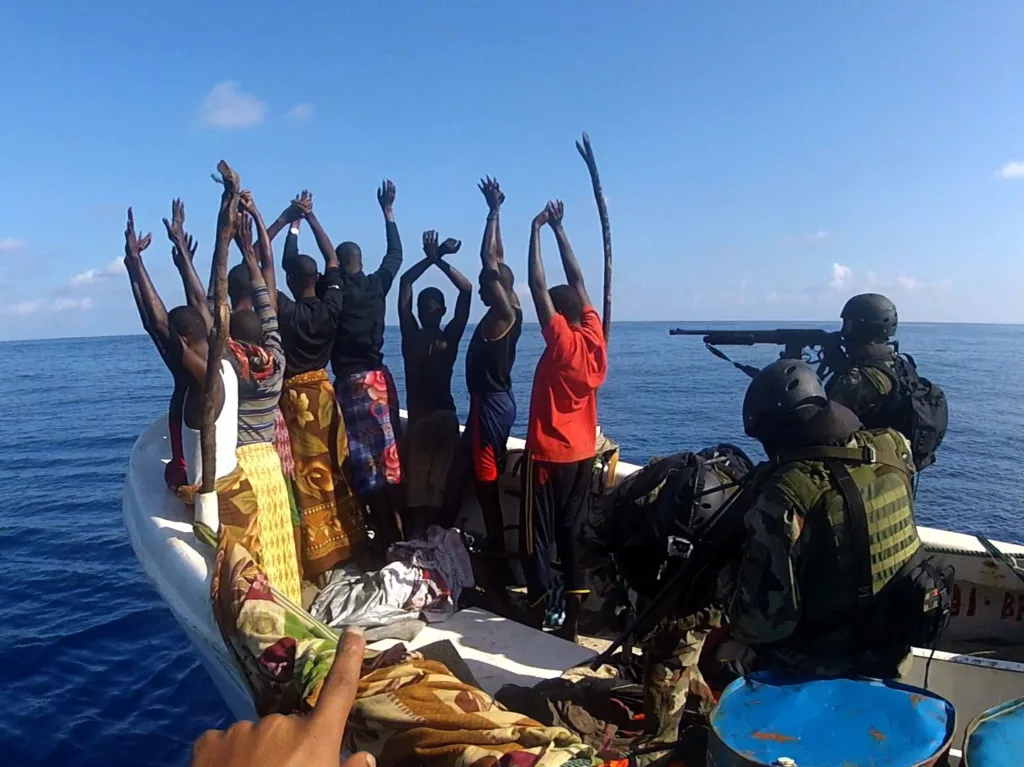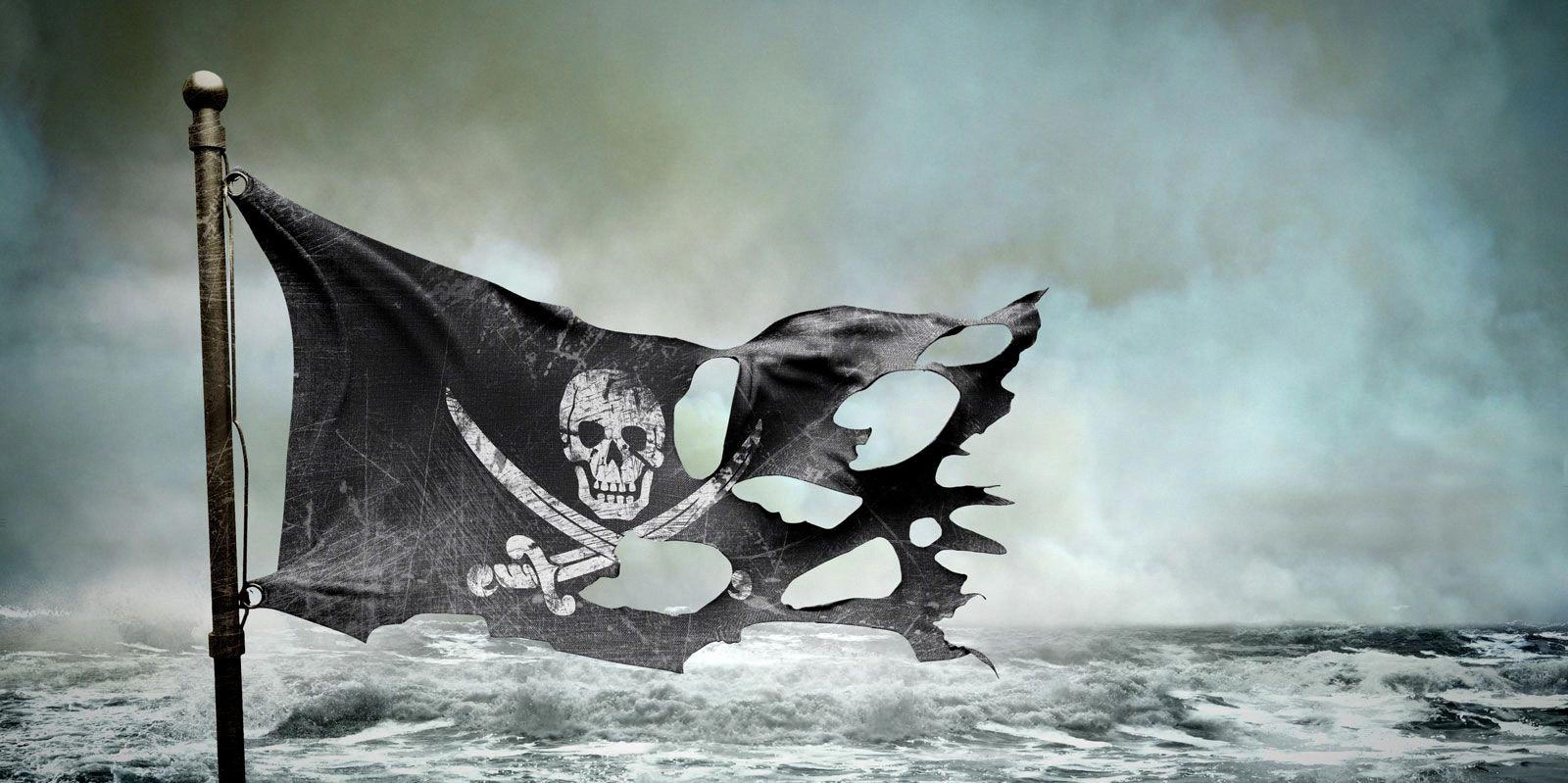Pirates have been a part of human history for centuries, capturing the imagination of people around the world with their daring exploits on the high seas. While most of us associate pirates with the Golden Age of piracy in the 17th and 18th centuries, the truth is that piracy still exists in the modern world.
In fact, piracy is still a major problem in many parts of the world. Pirates today may not wear eye patches or sport parrots on their shoulders, but they are every bit as dangerous as their historical counterparts. They are heavily armed, using guns, knives, grenades and rocket launchers to intimidate and threaten their victims.
Modern pirates operate in many different regions, but some of the most dangerous areas include the South and Southeast Asia, the South America, and the South of Red Sea. These pirates are often organized into groups, and they use sophisticated techniques to locate and board their targets.
One of the most common tactics used by modern pirates is to hijack cargo ships and hold the crew for ransom. In some cases, the pirates will even take the entire ship and its cargo, leaving the crew stranded at sea. These attacks can be incredibly violent, with crew members being threatened, assaulted, and even killed in some cases.
Despite the efforts of law enforcement agencies around the world, piracy continues to be a major problem. Many countries have enacted laws and regulations to combat piracy, but the sheer size of the world’s oceans makes it difficult to police every area were pirates operate.
In the United States, for example, piracy is still considered a federal crime under 18 U.S.C. § 1651. Anyone who commits piracy on the high seas and is later found in the United States can be imprisoned for life.
While the image of pirates may have changed over the years, the threat they pose to those on the high seas remains very real. Modern pirates are just as dangerous as their historical counterparts, and they continue to pose a significant challenge to law enforcement agencies around the world. It is essential that we remain vigilant and take steps to protect ourselves from this ongoing threat.
The Legality of Piracy
Yes, being a pirate is illegal. Piracy is an act of robbery or violence committed by individuals or groups on the open seas or in coastal waters. It is considered a serious crime under international law and is punishable by imprisonment or even death in some countries. Piracy violates the United Nations Convention on the Law of the Sea, which defines piracy as any illegal acts of violence or detention, or any act of depredation, committed for private ends by the crew or passengers of a private ship or aircraft against anther ship or aircraft on the high seas or in a place outside the jurisdiction of any state. Additionally, piracy is also illegal under US law, as stated in 18 U.S.C. § 1651, which imposes severe penalties for those who commit piracy and are later found in the United States.

The Activities of Modern Day Pirates
Modern day pirates, much like their Golden Age counterparts, arm themselves heavily with guns, knives, grenades, and rocket launchers. They use these weapons to threaten and assault crew members, take hostages, and maroon their victims. In some cases, pirates may even transfer the ship’s crew to the attack vessel and depart with the entire ship and its cargo. Additionally, modern pirates are known to engage in illegal activities such as smuggling, drug trafficking, and human trafficking. These actions have a significant impact on global commerce and the safety of those who work in the maritime industry.
The Remaining Presence of Pirates
Yes, there are still pirates in the world today. While piracy has decreased significantly since the golden age of piracy in the 17th and 18th centuries, there are still instances of piracy in certain parts of the world. The most common areas for modern piracy are the South and Southeast Asia, the South America, and the South of Red Sea. Modern pirates are often masked and dressed differently than the general population, and they can be very aggressive. There are two main types of modern piracy: small-time pirates and organized pirate groups. Despite efforts by governments and international organizations to combat piracy, it remains a problem in some regions. However, it is important to note that the vast majority of maritime travel and trade occurs safely and without incident.
The Consequences of Piracy: Can Pirates Go To Jail?
Yes, pirates can go to jail. Piracy is considered a serious crime, and those who engage in it can face imprisonment and other legal consequences. Many countries that have been affected by piracy have laws in place that allow for prosecution and punishment of pirates. In some cases, countries may agree to take pirates who attacked teir own interests for trial. The United States is one such country that has taken this approach. In fact, the US has incarcerated at least 28 Somali pirates in American prisons, stemming from just five cases. So, to sum up, pirates can definitely go to jail for their actions.
Are Pirates Still a Threat to Global Security?
Yes, pirates are still a threat despite the recent decrease in piracy incidents reported by the ICC International Maritime Bureau. Although the number of reported piracy incidents has decreased, piracy still poses a significant threat to the safety and security of seafarers and vessels. Pirate attacks uually occur in the waters off the coast of Somalia, West Africa, and Southeast Asia, where pirates are known to use sophisticated weapons and tactics to hijack vessels and kidnap crew members for ransom. Additionally, piracy can also result in financial loss due to stolen cargo, damage to vessels, and insurance costs. It is important for shipping companies and governments to remain vigilant and take necessary measures to prevent piracy incidents and ensure the safety of seafarers and vessels.

Source: britannica.com
Do Pirates Use Firearms?
Yes, pirates carry guns. During the Golden Age of Piracy, pirates used a variety of weapons to attack ships and steal ther goods. Firearms were a particularly important tool for pirates, as they allowed them to attack from a distance and intimidate their victims. Pirates were known to carry pistols, muskets, and other types of guns, which they could use to overpower their targets. In addition to firearms, pirates also used swords, knives, and other close-combat weapons to fight their enemies. Overall, guns were an essential part of the pirate arsenal and played a key role in their success on the high seas.
The Ethics of Piracy
No, it is not OK to pirate software, video games, or any other copyrighted material. Piracy is a federal crime in the United States and is punishable by law. It is illegal to download, copy, or distribute copyrighted content withut the permission of the copyright holder. Piracy harms the creators and owners of the content by depriving them of their rightful income and jeopardizing their ability to create new content. Additionally, pirated content may contain viruses and malware that can harm your computer or device. It is important to respect intellectual property rights and support the creators and owners of the content you enjoy by purchasing it legally.
Can Pirates Claim Bounties?
No, pirates cannot claim a bounty. Bounties are rewards that are offered by governments or other organizations for capturing or killing a wanted criminal, such as a pirate. However, pirates themselves are considered to be criminals and are therefore ineligible to collect on any bounties that may exist for their capture. In fact, pirates who attempt to claim a bounty may themselves be arrested or even face additional charges for their criminal activities. So, in short, it is confirmed that pirates cannot collect on bounties.
The Risk of Cruise Ships Being Attacked by Pirates
While piracy is a real threat in some parts of the world, the chances of a cruise ship being attacked by pirates are very low. In fact, there has nver been a successful pirate attack on a cruise ship. This is due to various factors such as the size and speed of modern cruise ships, as well as their advanced security and surveillance systems.
However, cruise ships are not taking any chances and are always prepared for the worst. They have security measures in place to deter any potential attacks, including armed guards, high-pressure hoses, and even sonic weapons. Additionally, cruise lines avoid areas with a high risk of piracy and have contingency plans in place in case of an emergency.
While the likelihood of a pirate attack on a cruise ship is low, it’s always better to be safe than sorry. Cruise lines take the safety and security of their passengers very seriously and do everything in their power to ensure a smooth and safe sailing experience.

The Country With the Most Pirates
It is important to note that piracy is a criminal act that can occur in varios parts of the world. However, as per the latest statistics available, the country with the highest number of reported piracy incidents in 2021 is Peru. According to reports, there were a total of 18 actual or attempted piracy attacks in Peruvian waters in 2021. It is important to note that piracy is a serious threat to maritime security, and it can have significant economic and social impacts on affected countries. While Peru may have the highest number of reported piracy incidents, it is crucial for all countries to take measures to prevent and combat piracy in their waters.
Pirate Attacks on Cruise Ships
Yes, there have been instances where pirates have attacked cruise ships. One such incident occurred in 2005 when Seabourn Spirit, a luxury cruise ship, was attacked by pirates off the coast of Somalia. The pirates, riding in two small speedboats, fired at the ship with machine guns and rocket-propelled grenades. However, the crew was able to drive them off with a water hose and a long range acoustic device. This incident highlighted the growing threat of piracy in certain parts of the world and led to increased security measures being implemented on cruise ships. Since then, there have been othr reported incidents of piracy against cruise ships, with some resulting in injuries and fatalities. As a result, cruise lines continue to work closely with international authorities to ensure the safety and security of their passengers and crew.
The Last Pirate on Earth
It is difficult to determine who the last pirate on earth was as piracy still exists in some form today, particulaly in areas such as the Gulf of Aden, the Strait of Malacca, and the waters off the coast of Somalia. However, if we are referring to historical piracy, the last known pirate to be convicted and executed was Captain Nathaniel Gordon in 1862. Gordon was a slave trader who was caught smuggling slaves into the United States and was sentenced to hang under the Piracy Law of 1820. It is worth noting that piracy has a long and complex history, and while we may not know the identity of the last pirate, we can certainly learn from the past and work towards preventing acts of piracy in the future.
The Most Famous Pirate in History
The most famous pirate in history is Blackbeard. He is known for his fearsome appearance, including a long black beard and multiple weapons, as well as his reputation for brutality and ruthlessness. Blackbeard’s real name was Edward Teach, but he adopted the name Blackbeard as part of his persona as a pirate. Although much of his life is shrouded in mystery, he is believed to have captured numerous ships and amassed a large fortune throuh his piracy. Despite his infamy, Blackbeard met his end in a battle with British naval forces in 1718. His legend, however, lives on to this day, making him one of the most enduring figures of pirate lore.

The Existence of Pirate Treasure
Yes, pirate treasure does exist, but it is extremely rare to find. Pirate treasure refers to the wealth and valuables that were stolen by pirates during their raids on ships and coastal towns. Many pirates buried their treasure on remote islands or along the coast, and some of it has nver been found. However, there have been a few notable discoveries of pirate treasure, such as the Whydah wreck off the coast of Cape Cod, which contained hundreds of thousands of gold coins and artifacts. While finding pirate treasure may be a romantic notion, it is important to remember that pirating was a violent and illegal activity that caused harm to many people.
Conclusion
In conclusion, piracy is not just a thing of the past. Even in the modern era, piracy stll exists and poses a significant threat to global maritime security. The tactics and weapons used by modern pirates are more advanced than those of their Golden Age counterparts, and they operate in various parts of the world, including Southeast Asia, South America, and the Red Sea. The efforts to combat piracy have been stepped up, with various international organizations and governments working together to bring it to an end. However, the persistence of piracy as a global problem reminds us of the need for continued vigilance and cooperation among nations to ensure the safety of seafarers and the smooth functioning of global maritime trade.
